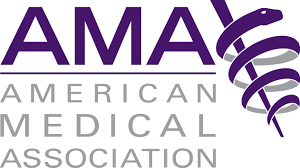 With the Department of Justice announcement of the $155 million dollar eClinicalWorks settlement (including personal liability for the CEO, CMO and COO), many stakeholders are wondering what’s next for EHRs. Clearly the industry is in a state of transition. eCW will be distracted by its 5 year corporate integrity agreement. AthenaHealth will have to focus on the activist investors at Elliott Management who now own 10% of the company and have a track record of changing management/preparing companies for sale. As mergers and acquisitions result in more enterprise solutions, Epic (and to some extent Cerner) will displace other vendors in large healthcare systems. However, the ongoing operational cost of these enterprise solutions will cause many to re-examine alternatives such as Meditech...
With the Department of Justice announcement of the $155 million dollar eClinicalWorks settlement (including personal liability for the CEO, CMO and COO), many stakeholders are wondering what’s next for EHRs. Clearly the industry is in a state of transition. eCW will be distracted by its 5 year corporate integrity agreement. AthenaHealth will have to focus on the activist investors at Elliott Management who now own 10% of the company and have a track record of changing management/preparing companies for sale. As mergers and acquisitions result in more enterprise solutions, Epic (and to some extent Cerner) will displace other vendors in large healthcare systems. However, the ongoing operational cost of these enterprise solutions will cause many to re-examine alternatives such as Meditech...
team-based care
See the following -
Halamka on What's Next for Electronic Health Records
- Login to post comments
Physician EHR Use, Workload Trumping Face Time with Patients
For every hour physicians spend with patients, they spend another two hours on physician EHR use and deskwork, according to a recent study from the American Medical Association. The AMA study highlights what many consider the primary issue with the increasing prevalence of physician EHR use: the significant workload the technology adds for providers...
- Login to post comments
Type & Click Tasks Drain Half the Primary Care Workday
 Primary care physicians spend more than half of their workday at a computer screen performing data entry and other tasks with electronic medical records (EHRs), according to new research from experts at the University of Wisconsin and the American Medical Association (AMA). Based on data from EHR event logs and confirmed by direct observation data, researchers found that during a typical 11.4-hour workday, primary care physicians spent nearly six hours on data entry and other tasks with EHR systems during and after clinical hours. The study was published today in the Annals of Family Medicine...
Primary care physicians spend more than half of their workday at a computer screen performing data entry and other tasks with electronic medical records (EHRs), according to new research from experts at the University of Wisconsin and the American Medical Association (AMA). Based on data from EHR event logs and confirmed by direct observation data, researchers found that during a typical 11.4-hour workday, primary care physicians spent nearly six hours on data entry and other tasks with EHR systems during and after clinical hours. The study was published today in the Annals of Family Medicine...
- Login to post comments
Why Electronic Health Records Aren't More Usable
Federal government incentives worth about $30 billion have persuaded the majority of physicians and hospitals to adopt electronic health record (EHR) systems over the past few years. However, most physicians do not find EHRs easy to use. Physicians often have difficulty entering structured data in EHRs, especially during patient encounters. The records are hard to read because they're full of irrelevant boilerplates generated by the software and lack individualized information about the patient...
- Login to post comments